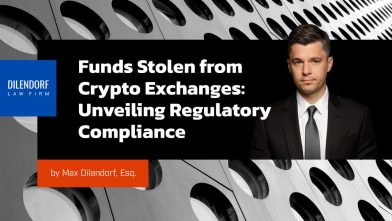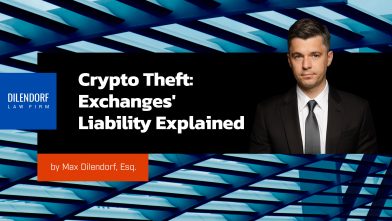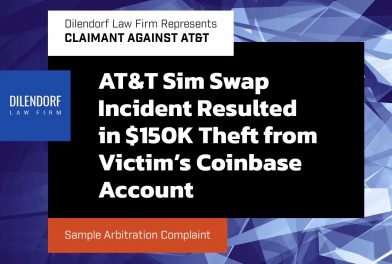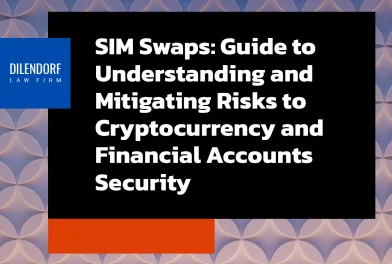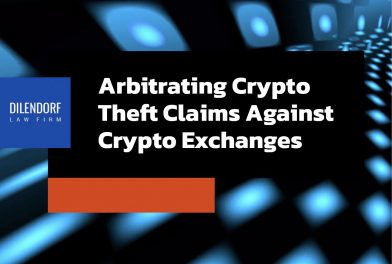Effect of SEC Compliant ICO in U.S. on Token Utility Status
Since the benchmark DAO report of investigation[1], Munchee cease-and-desist order[2] and underlying proceedings in 2017, the SEC’s position on ICOs and token sales has been unshakeable: digital assets, such as tokens, used in the fundraising process for a blockchain project or venture will most likely have features of a security and, thus, will be considered securities. And the companies issuing tokens and offering them for sale should follow the SEC’s private placement rules applicable to any traditional security, such as stock or investment contract.
However, numerous jurisdictions adopted definitions of a security that differ from the U.S. (1946 Howey case [3]). Such jurisdictions may not be treating or regulating certain tokens that have functionality or utility value on the platform (so-called “utility tokens”) as securities.
The difference in the approaches between the U.S. and some of the popular ICO jurisdictions causes confusion to companies that are trying to avoid labeling their token as a “security” by all means. As a result of this confusion, token issuers often avoid selling tokens in the U.S., which they think may turn their token into a security for all of the token buyers worldwide.
This may not be the case.
Token issuers often oversee the fact that an SEC-compliant token sale under the private placement rules does not necessarily make the token a security in all other jurisdictions. We believe that it is the function and the qualities of the token and the way it is sold that affect its status as a security in the U.S. or any other jurisdiction. In other words, selling digital tokens in a private placement under Regulation D in the U.S. does not automatically qualify such tokens as securities in all other jurisdictions around the world.
We have seen projects that had raised funds from U.S. investors under exemptions from the SEC registration, such as Regulation D, but still qualified as utility tokens in other jurisdictions (relying on legal opinions of local attorneys). This qualification depends on the local securities laws and regulations. Just like qualifying as utility in Switzerland, for example, would not automatically qualify tokens as utility in the U.S.
Moreover, the SEC never denied that digital tokens may have utility features, value or functionality on the issuer’s platform – the commission only insists on treating tokens as securities, while such tokens and their offerings have features of an investment. The SEC officials admitted that, under certain circumstances, tokens used in a network or on a platform may stop being a security and fall out of the SEC’s regulation. The analysis of what is a security in the U.S. is not static and depends on a number of factors, including, among other, whether the team members’ efforts could lead to the token’s increase in value.
As a recent example, the SEC officials declared that current offers and sales of Ethereum are not securities transactions because of the lack of central figure or group responsible for Ethereum network. However, stating that, the SEC director expressly put aside the fund-raising stage accompanying the creation of Ethereum, at which point it might as well have been a U.S.-traded security.
Conclusion
Raising funds during an ICO in compliance with the U.S. securities regulations, such as Regulation D offerings to U.S.-based accredited investors, does not automatically turn tokens into securities in other jurisdictions, as there is no worldwide definition of a security and such definition varies from country to country.
Certain tokens may qualify as securities in the U.S. and be not considered securities in a foreign jurisdiction of issuer’s incorporation or token sale.
While there are not a lot of real-life examples or detailed guidance from the SEC and the courts, even tokens considered securities may at some point stop being securities in the U.S.
We believe that an SEC-compliant token sale through a private placement should not deprive utility token issuers of any of the above options, or serve as an absolute proof of the token’s security status worldwide.
You should consult with local securities attorneys regarding the qualification of a particular token in each jurisdiction where the token is offered or sold.
[1] https://www.sec.gov/news/press-release/2017-131
[2] https://www.sec.gov/litigation/admin/2017/33-10445.pdf
[3] SEC v. Howey Co., 328 U.S. 293 (1946).

